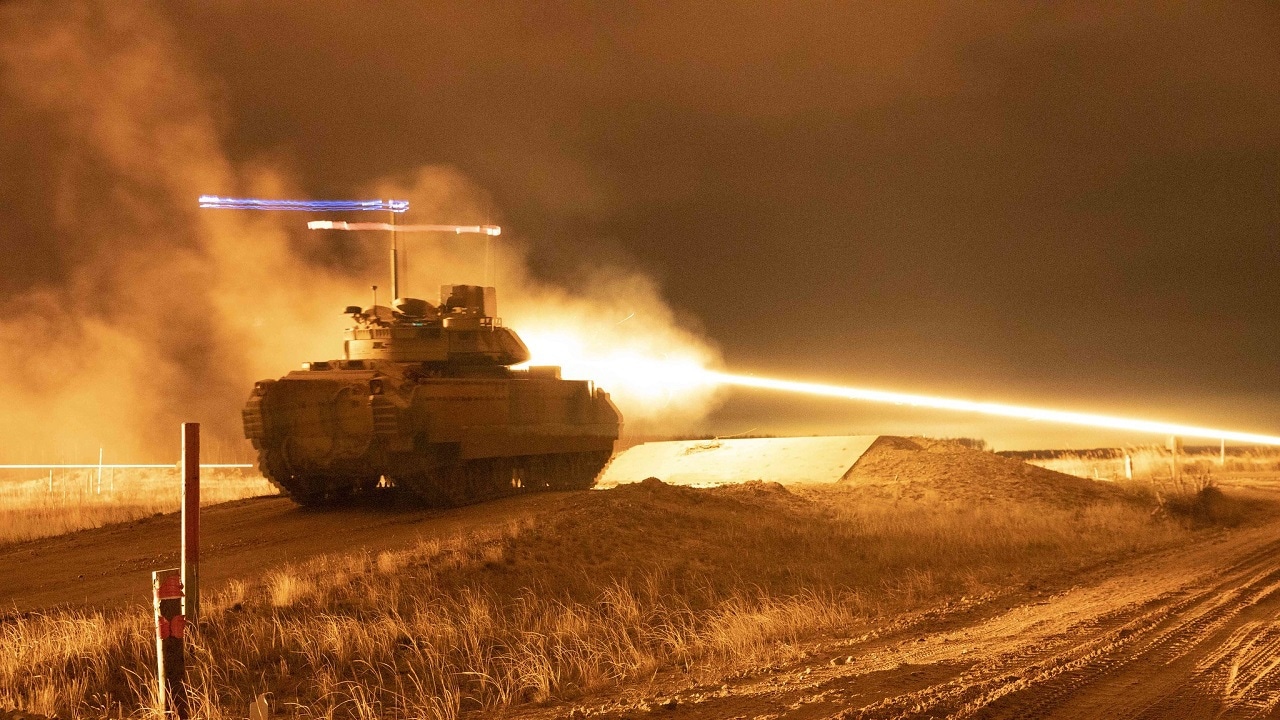The Russian Orthodox Church has lost its soul.
Several weeks ago, Patriarch Kirill, the head of the Church and reputedly a long-time agent of the Soviet secret police, suggested that Russia’s invasion of Ukraine—which, following official terminology, he called a “military operation”—was a struggle over gay rights.
Stating that “those who claim world power” insist on a loyalty test that serves as “a kind of pass to that ‘happy’ world, the world of excess consumption, the world of visible ‘freedom,’ Kirill asked: “Do you know what this test is? The test is very simple and at the same time terrible—it’s a gay parade.”
As distressing as Kirill’s remarks were, conditions within the Russian Orthodox Church—well known for its slavish relationship with the imperial, Soviet, and Russian states—are actually much worse.
The Bryansk Eparchy recently issued a holy picture with the icon of a saint on one side and a call to arms directed at the “Russian Soldier” on the other. The text is signed by Father Mikhail Ageshin, the head of the eparchy’s “department for cooperation with the armed forces and organs of law and order.” Despite the picture’s going viral, neither the eparchy nor Ageshin has denied its authenticity.
“Your duty,” the document says, is “the defense of the Homeland from Ukrainian nationalists.” That not a single Ukrainian soldier has attacked Russia and that over 100,000 Russian soldiers invaded Ukraine on February 24 don’t seem to matter. Evidently, the very existence of Ukraine is an affront, a threat to Russia.
The next line, the coup de grace, makes this point abundantly clear: “Your task [is] to wipe the Ukrainian nation from the face of the earth.” Not stop, not defeat, not convert, but—literally—wipe from the face of the earth. That is, exterminate—as one would vermin.
Hitler couldn’t have put it any better.
But Ukrainians aren’t the only targets of the Russian Orthodox Church.
St. Isaac’s Cathedral in St. Petersburg, Russia’s largest and an architectural masterpiece from the first half of the nineteenth century, was the site on February 23, Defender of the Fatherland Day, of the prestigious St. Petersburg Chamber Choir performing a song with the following lyrics:
A small submarine with a little atomic motor
And with ten little bombs of a hundred megatons,
Crossed the Atlantic and I called the gunner:
“Petrov, target the city of Washington!”
Tra-la-la, tra-la-la, I can do everything for three rubles
Greetings to the new land of the Enemy!
And high above in a little plane is my pal Vovochka
Bearing gifts in loaded hatches
In the little submarine with a little atomic motor
The crew sings a happy little song
Tra-la-la, tra-la-la, we can do everything for three rubles!
And burn, burn, you land of the Enemy!
The song was written in 1980 by the blues musician Andrei Kozlovsky, who intended it as a satire of Soviet foreign policy. But context matters. It’s one thing to satirize the Soviet Union with its own words; it’s quite another to expect the text to remain merely satirical when sung by a famous choir on Defender of the Fatherland Day at a time of mounting Russian aggression toward Ukraine.
It was in the week before the invasion that Russian propagandists intensified their smear campaign against the Kyiv authorities, accusing them—and Ukraine’s Jewish President Volodymyr Zelensky!—of being neo-Nazis with a genocidal agenda as a run-up to war.
In such an environment, the song was at best an example of awful taste, at worst an incitement to violence in, of all places, a house of God. St. Isaac’s Orthodox authorities obviously approved of the concert and presumably had no problems with a song about nuking Washington DC.
The choir’s conductor, Vladimir Begletsov, claimed the song was a joke and that the smiling audience took it as such. Moreover, said Begletsov, his choir has been performing the song for 10 years, including twice in the Great Hall of the St. Petersburg Philarmonic.
He may have been right about some of his listeners. Given the adulation that over 70 percent of the Russian public feels for Putin and his war, however, it’s rather more likely that the audiences didn’t object because they, like Putin, Father Ageshin, and Patriarch Kirill’s Church, thoroughly approved of the genocidal sentiments.
Dr. Alexander Motyl is a professor of political science at Rutgers-Newark. A specialist on Ukraine, Russia, and the USSR, and on nationalism, revolutions, empires, and theory, he is the author of 10 books of nonfiction, including Pidsumky imperii (2009); Puti imperii (2004); Imperial Ends: The Decay, Collapse, and Revival of Empires (2001); Revolutions, Nations, Empires: Conceptual Limits and Theoretical Possibilities (1999); Dilemmas of Independence: Ukraine after Totalitarianism (1993); and The Turn to the Right: The Ideological Origins and Development of Ukrainian Nationalism, 1919–1929 (1980); the editor of 15 volumes, including The Encyclopedia of Nationalism (2000) and The Holodomor Reader (2012); and a contributor of dozens of articles to academic and policy journals, newspaper op-ed pages, and magazines. He also has a weekly blog, “Ukraine’s Orange Blues.”

